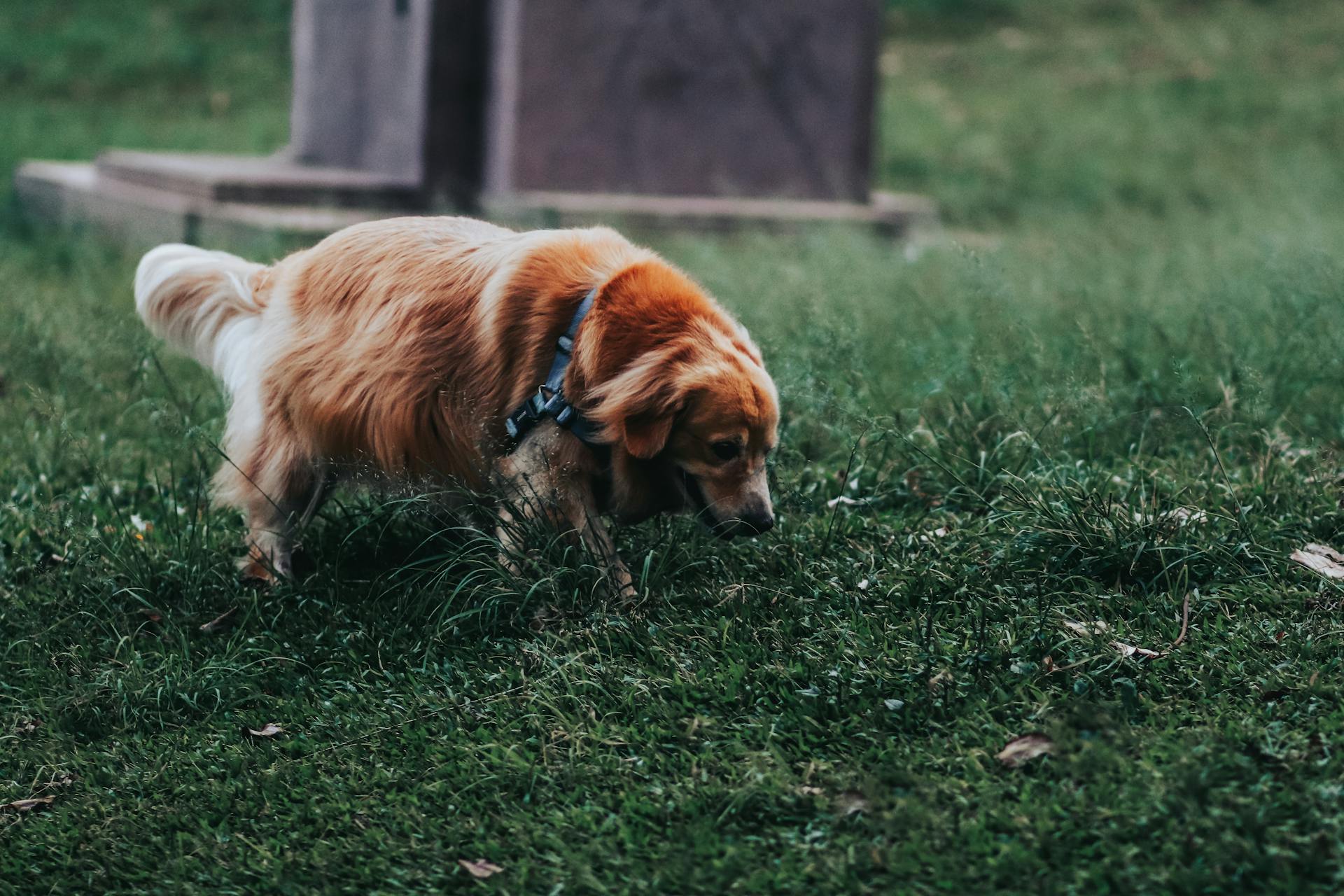
Miniature Schnauzers are intelligent dogs that require regular exercise and mental stimulation to prevent boredom and destructive behavior.
They can be prone to separation anxiety, which can lead to destructive behavior when left alone for extended periods.
Miniature Schnauzers need daily walks and playtime to keep them physically and mentally healthy.
Their small size makes them adaptable to apartment living, but they still require regular exercise to stay happy and healthy.
Their independent nature can sometimes make them stubborn, but with consistent training and positive reinforcement, they can learn to obey commands and behave well in public.
Schnauzer Behavior
Miniature Schnauzers are alert dogs, which means they can be especially vocal and bark at neighbors, delivery people, and neighborhood squirrels.
They're prone to chasing anything that moves, which can get them into trouble, so it's essential to keep them on a leash or within a fenced-in yard when they're outside.
Their history as rat-catching dogs has made them think they're much bigger than they actually are, leading to some mischief.
Miniature Schnauzers are not big shedders, although they do require regular professional grooming.
They can be a bit stubborn and prefer to make their own decisions rather than follow precise directions, which can make training a bit challenging.
Early socialization can help mitigate their tendency to regard cats, pet birds, and other small animals as vermin, but it's unlikely to fully eradicate this instinct.
Their alert look is the result of painful ear-cropping in puppyhood, and more people are choosing to leave their ears as they are, folded slightly forward and framing the face.
Miniature Schnauzers are not happy when ostracized from their human "pack", so it's best to make them an indoor dog if you value your relationship with your neighbors.
Their barking can be a significant issue, and they'll work off excess energy by digging or destroying furniture if they don't get enough exercise and mental stimulation.
A unique perspective: How to Train a Miniature Schnauzer Not to Bark
Schnauzer Care
Miniature Schnauzers are intelligent dogs that require regular exercise and mental stimulation to prevent boredom and naughty behavior. They need at least an hour of exercise a day, which can include walks, puzzle games, agility, and learning new tricks.
To keep your Miniature Schnauzer's coat clean and healthy, brush it at least weekly, and consider professional grooming twice a year. This will help maintain their wiry double coat.
Miniature Schnauzers are prone to serious dental problems, so brush their teeth at least three times a week. This will help prevent painful dental issues and keep their breath fresh.
To keep your Miniature Schnauzer's ears clean and healthy, clean them weekly, even from a young age. This will help prevent infections and keep them happy and healthy.
Here are some essential care tasks to keep your Miniature Schnauzer happy and healthy:
- Supervise your pet as you would a toddler, keeping doors closed and blocking off rooms as necessary.
- Keep your dog's diet consistent and avoid giving them people food.
- Exercise your dog regularly, but don't overdo it at first.
- Clean your dog's ears weekly, even as a puppy.
- Brush your dog's coat as needed, at least weekly.
- Feed a high-quality diet appropriate for your dog's age.
A strong chase instinct means your Miniature Schnauzer needs to be leash walked and has a need for a fenced yard. With proper care and attention, they can thrive in apartment life, as long as they receive daily walks and frequent play sessions.
Schnauzer Health
Miniature Schnauzers are generally a healthy breed, but like all breeds, they can be prone to certain health issues.
Hip dysplasia is a common issue in Miniature Schnauzers, which can lead to arthritis and mobility problems.
Regular exercise and a healthy diet can help prevent or manage hip dysplasia.
Some Miniature Schnauzers can also be prone to eye problems, such as cataracts and progressive retinal atrophy, which can lead to blindness.
Eye exams and regular veterinary check-ups can help detect these issues early on.
Schnauzer Health Information
Schnauzers are generally a healthy breed, but like all breeds, they can be prone to certain health issues.
Hip dysplasia is a common problem in large breed dogs, including the Miniature Schnauzer, which can lead to arthritis and mobility issues.
The Standard Schnauzer is at risk for eye problems, including cataracts and progressive retinal atrophy.
Gastric torsion, also known as bloat, can be a life-threatening condition in Schnauzers, particularly after eating a large meal.
Schnauzers can also be susceptible to autoimmune disorders, such as Addison's disease and thyroid issues.
Regular veterinary check-ups and a balanced diet can help prevent or manage many of these health issues.
For more insights, see: Miniature Schnauzer Dog Breed Profile
Genetic Predispositions
Schnauzers are prone to certain genetic health issues, including hip dysplasia, which affects their joints and can lead to arthritis and mobility problems.
Hip dysplasia is a common issue in large breed dogs, and it's estimated that 50% of Miniature Schnauzers and 20% of Standard Schnauzers are affected.
Regular exercise and a healthy weight can help prevent or manage hip dysplasia.
Some Schnauzers are also born with a condition called ichthyosis, which causes dry, flaky skin.
Ichthyosis can be inherited, and it's more common in Miniature Schnauzers.
While there's no cure for ichthyosis, regular grooming and a balanced diet can help manage the condition.
Schnauzers are also at risk for eye problems, such as entropion and ectropion, which can cause irritation and vision loss.
These conditions are often inherited and can be managed with surgery or medication.
Some Schnauzers are also prone to autoimmune disorders, such as Addison's disease and Cushing's disease.
These conditions occur when the immune system attacks healthy tissues, and they can be managed with medication and lifestyle changes.
Regular veterinary check-ups can help identify genetic health issues early on, reducing the risk of complications and improving treatment outcomes.
Suggestion: Giant Schnauzer Health Problems
Allergies
Allergies are a common issue in Mini Schnauzers, and it's essential to recognize the signs. Mini Schnauzers often have a skin allergy called "atopy", which makes their skin itchy.
The feet, belly, folds of the skin, and ears are most commonly affected by this skin allergy. Symptoms typically start between the ages of one and three.
Licking the paws, rubbing the face, and frequent ear infections are the most common signs of allergies in Mini Schnauzers. These symptoms can worsen every year if left untreated.
Fortunately, there are many treatment options available for allergies in Mini Schnauzers.
For your interest: Mini Schnauzer Skin Problems
Behavior Problems
Miniature Schnauzers can be especially vocal and bark at neighbors, delivery people, and neighborhood squirrels.
Their history as rat-catching dogs means some Miniature Schnauzers are more prone to chasing anything that moves.
Miniature Schnauzers should always be kept on a leash or within a fenced-in yard when they're outside to prevent them from darting off.
Their small size can sometimes make them think they're much bigger than they actually are, leading to trouble.
This can get them into trouble, so it's essential to keep them under control when they're outside.
Consider reading: When Does a Mini Schnauzer Stop Growing
Frequently Asked Questions
What age do mini schnauzers calm down?
Mini schnauzers typically calm down between 6-12 months of age, but individual temperaments may vary. If you're looking for more specific guidance on managing your mini schnauzer's energy levels, read on to learn more about factors that can impact their calmness.
Sources
- https://www.petmd.com/dog/breeds/miniature-schnauzer
- https://www.embracepetinsurance.com/dog-breeds/miniature-schnauzer
- https://www.smallanimalclinic.com/services/dogs/breeds/miniature-schnauzer
- https://midwayanimal.com/client-resources/breed-info/miniature-schnauzer/
- https://www.doggoneproblems.com/lucy-jake-gracie-stormy/
Featured Images: pexels.com


